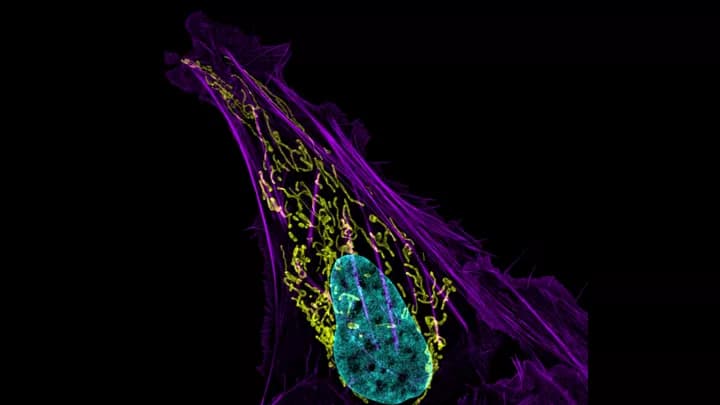
Suppressing Protein Alleviates Radiation-Induced Bone Loss In Animal Model
Radiotherapy destroys cancer cells using high-energy ionizing radiation to damage DNA and induce cell death. About two million patients per year in the United States -- more than 50 percent of all cancer patients -- receive radiotherapy at some stage during their illness, either alone or in combination with chemotherapy, surgery, and targeted medicines.
Radiotherapy targets tumor cells but also causes damage to nearby healthy tissues. While this side effect has been improved by computer-assisted guidance, patients who receive radiation remain at high risk of losing bone density and suffering from broken bones within the radiation field during their lifetimes.
New research from Perelman School of Medicine at the University of Pennsylvania and the Children's Hospital of Philadelphia may hold a clue to curtailing this feared side effect: suppressing a bone specific protein via its neutralizing antibody alleviates radiation-induced bone loss in an animal model. "Our study showed that activating the Wnt/b-catenin pathway can overcome radiation-induced DNA damage and death of bone-making cells," said senior author Ling Qin, PhD, an associate professor of Orthopaedic Surgery at Penn. "This study has clinical relevance in that it demonstrates an antibody that can block sclerostin(Scl-Ab), a circulating factor that can inhibit bone formation, can ameliorate radiotherapy-induced osteoporosis." The team published their findings in the Journal of Bone & Mineral Research.
A Phase II study underway at other centers using Romosozumab (Scl-Ab) for general osteoporosis is showing promise and this encouraged the team to determine whether weekly treatment with Scl-Ab could prevent radiotherapy-induced osteoporosis in mice. They found that Scl-Ab blocked deterioration of trabecular, or spongy, bone after radiation by partially preserving the number and activity of bone-forming cells. Scl-Ab accelerated DNA repair in bone cells after radiation by reducing the number of DNA double-strand-break markers and increasing the amount of DNA-repair proteins. This protected the bone cells from turning on a radiation-induced, cell-death process.
Using cell-lineage tracing, the team demonstrated that radiation damage to progenitor bone cells mainly involves shifting their fate to become fat cells and stops their ability to proliferate, but not inducing cell death. Scl-Ab treatment partially blocked the lineage shift, but had no effect on the loss of proliferation potential.
Materials provided by Perelman School of Medicine at the University of Pennsylvania. Note: Content may be edited for style and length.
Disclaimer: DoveMed is not responsible for the adapted accuracy of news releases posted to DoveMed by contributing universities and institutions.
Primary Resource:
Chandra, A., Lin, T., Young, T., Tong, W., Ma, X., Tseng, W. J., ... & Cengel, K. (2016). Suppression of Sclerostin Alleviates Radiation‐Induced Bone Loss by Protecting Bone‐Forming Cells and Their Progenitors Through Distinct Mechanisms. Journal of Bone and Mineral Research.
Related Articles
Test Your Knowledge
Asked by users
Related Centers
Related Specialties
Related Physicians
Related Procedures
Related Resources
Join DoveHubs
and connect with fellow professionals

0 Comments
Please log in to post a comment.